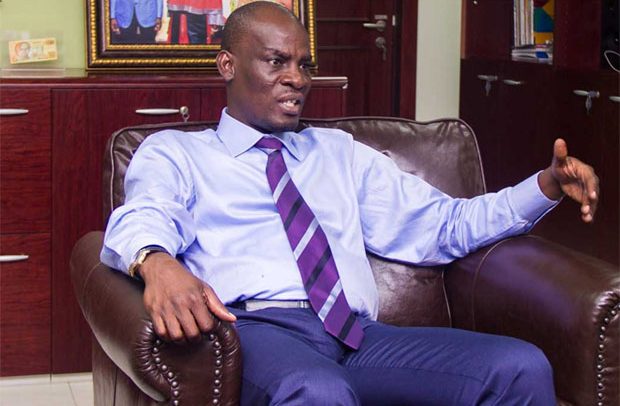Haruna Iddrisu, Minority Leader led the NDC petition to the IMF
The opposition National Democratic Congress (NDC)’s attempt to ‘sabotage’ the $2 billion Chinese infrastructure financing agreement appears to have hit the snag.
This is because the International Monetary Fund (IMF) Office in Accra has said it is unable to tell whether or not the Akufo-Addo-led NPP administration’s barter agreement with Sinohydro Corporation of China that would bring massive infrastructure development, especially in the roads sector, is a loan.
DAILY GUIDE learnt that the first tranche of $500 million has already hit Ghana’s account to allow the commencement of the various projects.
Vice President Dr Mahamudu Bawumia has already described the deal as a game-changer.
IMF Reply
The IMF’s Resident Representative in Accra, Natalia Koliadina, in response to a letter written and signed by the Minority Leader, Haruna Iddrisu and Cassiel Ato Forson, who is a ranking member of the Finance Committee, said she could not readily give an answer to the queries raised by the NDC because of the ‘complexity of the transaction.’
“You asked the IMF’s opinion on whether the agreement between the Government of Ghana and Sinohydro Corporation should be classified as government debt under the programme, and whether it would contribute to the stock of government debt,” the resident representative said.
“We will use the definition of government debt in the Technical Memorandum of Understandings which has not changed since the inception of the programme, to make this decision.”
Complex Transaction
The IMF said, “Given the complexity of the transaction, I am unable to answer your question immediately. I have been in consultations with headquarters, including the Legal Department, and we are going to discuss this issue with the authorities during the upcoming seventh review mission under the Extended Credit Facility.”
Sensing that the $2 billion barter agreement, when concluded, could serve as a catalyst for infrastructure development of the country and possibly dwindle their electoral fortunes, the NDC dashed to the IMF Office in Accra on August 10 to seek to get the Bretton Woods institution to classify the agreement as a loan which will end up increasing the country’s debt stock.
Illegal Deal
They wanted the IMF to stop the deal because they claim it’s ‘illegal’ even though the same political grouping had helped in passing the agreement in Parliament before the house went on recess in late July.
The opposition party members on the Finance Committee had deliberated on the Master Project Support Agreement (MPSA) between the Government of Ghana and Sinohydro Corporation Limited for the $2 billion for the construction of priority infrastructure projects before the committee’s report was laid in the house for approval.
Bawumia’s View
Dr Mahamudu Bawumia, who has been leading the negotiations, said the NPP government wants to prove to Ghanaians what $2 billion can do for the development of a nation like Ghana and assured that it’s going to be the game-changer in the infrastructural development of the country.
The barter transaction is basically tied to some bauxite deposits where the government is expected to repay with refined bauxite (alumina/aluminum).
Priority Projects
The projects would involve road infrastructure development, rural electrification, affordable housing, fish landing sites, to strengthen economic and regional integration and reduce the cost of doing business in the country.
Tamale, the home-town of Haruna Iddrisu, will be witnessing its first interchange in history under the Chinese deal.
Finance Committee
As explained by Chairman of the Finance Committee of Parliament, Dr. Mark Assibey Yeboah, under the MPSA, Sinohydro, is responsible for arranging the project financing for all the priority projects subject to the mutual agreement of the parties.
“Sinohydro shall be solely responsible to enter into the financing agreement (s) with any financial institution that agrees to provide the Project Financing,” he stated when the agreement was being approved.
He also said the Committee was further informed that the MPSA is essentially a “barter” facility by which Sinohydro will implement various EPC contracts for Ghana and the government repays with refined bauxite (alumina/aluminum).
Already the integrated alumina development authority bill has been passed by Parliament awaiting presidential assent to kick-start Ghana’s industrialization process.
“To enhance and maximise the value to Ghana of its bauxite resources, the Committee was informed that government, through the Ghana Integrated Bauxite and Alumina Development Authority (GIBADA), will establish a bauxite processing plant to process the raw bauxite into alumina before shipping same to service the obligations under the MPSA,” he said, adding “presently, raw bauxite was said to trade at about $24/tonne on the international market whilst processed alumina trades at more than $300/tone.”
By William Yaw Owusu


